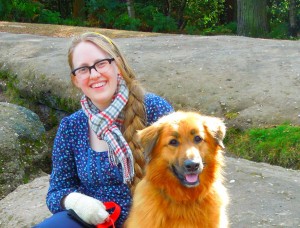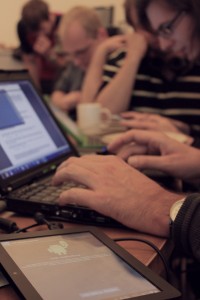FSCONS elation
“The purpose of life is to live it, to taste experience to the utmost, to reach out eagerly and without fear for newer and richer experience.”
― Eleanor Roosevelt-
Have you realized that, usually, the events that we are looking forward turned to be not as great as we were expecting? As everyone was telling me that I was going to really enjoy FSCONS, I was a bit afraid that it was not going to be as amazing as expected. But, despite I spent most of the time at our booth, the weekend in Gothenburg (even) went beyond my expectations.
So, what is FSCONS? It is a Free Software conference organised in Gothenburg yearly. So to say, it is a weekend for the people from the Free Software community to share their experiences and to improve their knowledge. It is an event so for the one who had been advocating Free Software for years as well as for the new ones and with people from all the ages.
We started FSCONS with a Free Your Android Workshop. So, once again, I tried to learn the most of it. I am not able to free devices but I enjoy watching our participants doing it and helping each other. This is one of my FSFE favourites campaigns: it takes time to liberate the android phones so it is always a quite social event. I am willing to have an Android phone to be able to free it!
During that afternoon I met a lot of new people but I also have the chance to talk with some fellows I met in Berlin. The rest of the weekend was just the same: sending FSFE merchandising, listening to some talks and learning from every single talk!
What can I say! It was great to be in an informal environment, sharing a beer and surrounded by so so many nice and interesting people! I met some women with whom I exchange some points of view about being a female in this, mainly, male field, and I was also able to discuss a bit about the other two topics I am interested in: education and communication.
The conclusion: A perfect weekend, full of laughs and good vibrations. And, although I was exhausted after it, I came back even more convinced about Free Software , the importance of our (or everyone) labour and a lot of ideas about what I can do to continue being involved and to do my bit.
So, what is FSCONS 2012? For me, it was the last push.
Thanks to everyone who made it possible!

